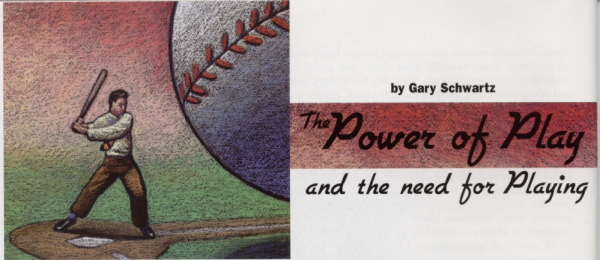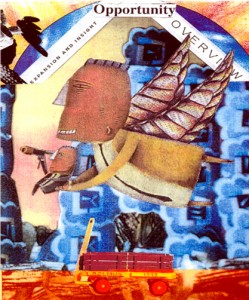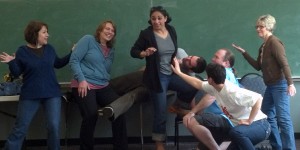The Difference between Spolin Games and Popular Improv
 Over 50 years ago Viola Spolin, created a philosophy that is more relevant and needed today than it has ever been. She called it Theater Games. It created a movement in America and the world over that is now commonly called improvisation or Improv.
Over 50 years ago Viola Spolin, created a philosophy that is more relevant and needed today than it has ever been. She called it Theater Games. It created a movement in America and the world over that is now commonly called improvisation or Improv.
Her work deals in experiential learning. Where, with the support of a good sidecoach, playing the game becomes the teacher. It is rooted in direct experience that lifts us out of our traditional roles and puts us in touch with our authentic self, each other and our circumstances.
Spolin’s improvisation training provides a way for people of different cultures, with different life experiences, to work together collaboratively to achieve productive outcomes. It is a way for individuals to participate fully and authentically in the solving of problems. It is a path to innovation and inspiration and personal commitment[1]. That was how Spolin conceived of improvisation, but the word has come to mean something else.


 The Trap
The Trap


